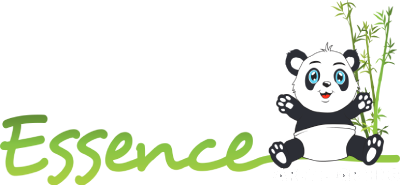QLD Government Approved Kindergarten Program

Kindergarten Curriculum
The curriculum is guided by the children's individual learning assessments, the interests of the individual children, educator's intentional teachings and parental input. Educators are in a constant process of reflection and these reflections also guide the curriculum.
The children in the Kindergarten Room will be attending Prep soon. As a member of the Nerang Alliance – a group of like-minded local schools, long day care centres and health professionals who strive for best outcomes for children and families, we are able to create connections to keep you best informed to support the important transition between Kindergarten and formal schooling.

Our centre curriculum relies heavily on the wonderful knowledge parents and families bring to the service along with their children.
Through the combination of vital "home" knowledge, legislative documents, the National Quality Framework and the centres philosophy, educators planning and programming thrives.
This encompasses all that is required to develop specialised, personalised, focused learning for the children at Essence Early Learning.
Our curriculum assists in the preparation for ongoing learning and school readiness. An emphasis is placed on communication skills, social skills (with children and adults), self-help and independence.

The 5 Learning and Development areas are:
1. Identity
Children build a strong sense of identity through connections with their families, peers, teachers and communities. Identity is not static — it changes over time and is influenced by an individual’s cultural identity and relationships.
Through these relationships, children develop a sense of belonging, confidence in others and in themselves, and an awareness of their own culture. They gain confidence in their abilities, a sense of agency in their decision-making and develop their independence.
2. Connectedness
Children are developing a sense of connectedness to their world. This connectedness helps them relate to the values, traditions and practices of their families, kindergartens, communities and the wider world. It supports them to learn about the interconnectedness of people and environments. Over time, this learning transforms the ways they interact with others and how they think about the world as ‘global citizens’.
Connectedness involves children’s understanding of and consideration for the rights of others and their respect for diversity. Children are developing an understanding of Aboriginal peoples’ and Torres Strait Islander peoples’ ways of knowing and being and their connection to Country and the importance of the connection between Country and the environment.
3. Well Being
Important aspects of wellbeing include children’s physical and mental health, personal safety and successful social functioning. Wellbeing is linked with resilience, providing children with the ability to manage change and respond
to challenges. A strong sense of wellbeing requires positive, supportive and trusting relationships, which build children’s confidence and optimism.
Learning about healthy lifestyles, the importance of nutritional food, rest, physical activity (including fine and gross motor skills) and personal hygiene, and developing an awareness of safety are essential for enhancing children’s sense of wellbeing.
4. Active Learning
Active learning helps children to build positive dispositions and approaches towards learning. It encourages increasing confidence, engagement and involvement in learning and the development of curiosity, problem-solving, creative thinking and investigation processes.
As active learners, children are developing understandings of themselves and their world, and creating their ideas through imaginative and dramatic play. They are showing an interest in technologies and the uses of different technologies.
5. Communicating
The foundation for children becoming effective citizens is their development of language, literacy and numeracy. Being able to communicate is fundamental to children’s everyday lives, including their ability to express their ideas and feelings, to question, to learn, to connect and interact with others. Children feel a strong sense of identity and connectedness when their ways of communicating are valued in the kindergarten environment.
Exploring and engaging with literacy through reading, viewing, listening, writing, speaking and creating in personally meaningful ways supports a kindergarten child to become an effective communicator. Numeracy is the capacity, confidence and disposition to use mathematics in everyday situations.
We observe and record each child's progress. Children will progress through these goals in 3 stages:
Emerging, Exploring and Extending
Through these learning outcomes our curriculum is designed to foster the development of:
Government Funded Kindergarten Program Eligibility

As of the 1st of January 2024, the QLD Government announced that Kindy will be free for all Queensland 4-year-old children attending an approved Kindy program for 15 hours per week, 40 weeks per year. This is only offered at QLD Government approved centres, which Essence Early Learning is a part of!
Our service is dedicated to providing the very best start to children’s education and offers an Approved Kindergarten Program for children in the year prior to staring school.
For our service, 15 hours of free kindy is delivered over two days during the school terms, with additional care paid for separately. Please speak with your Nominated Supervisor for more information regarding fees.
Approved kindergarten programs are designed to meet government guidelines to ensure children take part in quality early childhood education in Queensland with the following guidelines:
